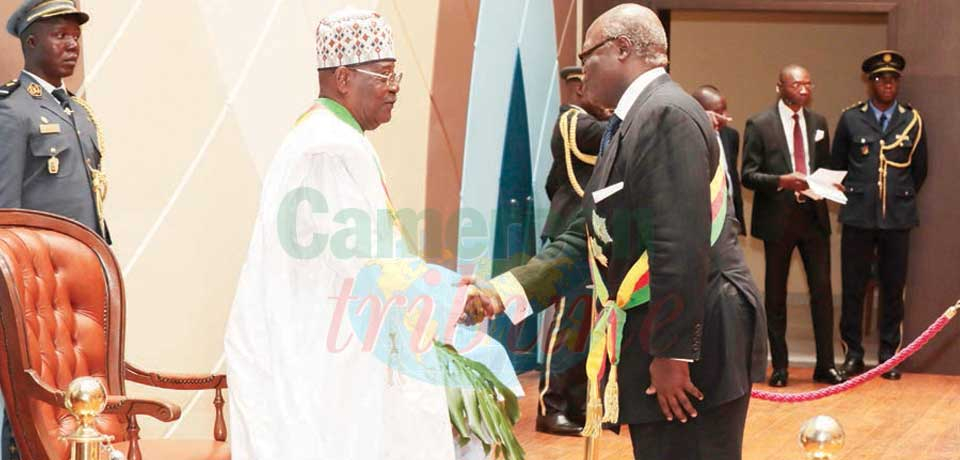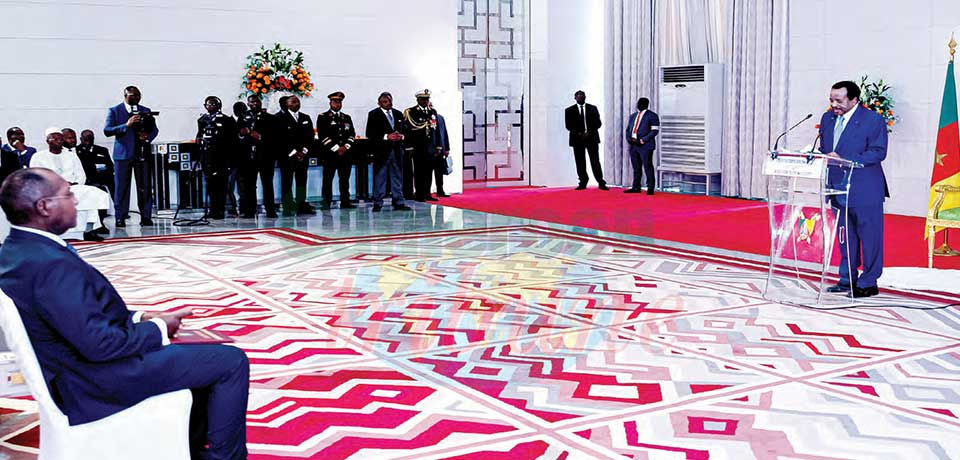Regional, Local Authorities : Understanding The Bill on General Code
- Par Emmanuel
- 16 déc. 2019 13:05
- 0 Likes
The bill has 501 sections subdivided into seven books.
Government on December 13, 2019 during the extraordinary session of Parliament tabled the bill to Institute the General Code of Regional and Local Authorities. The bill was prepared following the General Conference on Councils that took place on February 6-7, 2019 and the Major National Dialogue held in Yaounde from September 30 to October 4, 2019 which all offered the opportunity to take stock of the decentralisation process and in particular the functioning of councils.
Déjà abonné ?
Identifiez-vous >
In the explanatory statement, government argues that the bill compiles all laws related to Regional and Local Authorities into a single document and represents the determination to fast-track and deepen the decentralisation process. What is particular about the bill is that it has books that handle different aspects of the decentralisation process in the country.
The Books
-There is the Preliminary Book that has the preliminary provisions such as the definition of the purpose and scope of the code, specifies that the North West and South West Regions have a special status based on their linguistic specificity reflected in the educational and legal systems. This book underscores the need to uphold national unity, territorial integrity, primacy of the State, equality of dignity of regional and local authorities.
-Book I: The Book restates the main provisions of Law No. 2004/17 of 22 July 2004 on the Decentralisation policy. What is particular with the book is that it contains innovations. The bill makes the powers devolved exclusive powers of the regional and local authorities, though government services may exercise such powers only under certain conditions. The financial resources for the execution of the powers are no longer included in the budgets of ministries but allocated directly to councils. To strengthen citizens participation, the population is involved in all phases of the preparation and execution of the budget, programmes and projects and in the establishment of neighbourhood or village committees in councils. State supervision has been substantially relaxed to ensuring legality and providing advisory support. State budget allocated as General Decentralisation Grants may not be less than 15 per cent.
-Book II: It specifies the status and duties of local elected officials, their rights, obligations to their duties and residence. It also talks about the benefits officials enjoy.
-Book III: Focuses on the rules applicable to councils. Among the rules are the recruitment and management of nurses and paramedical staff of integrated health centres and subdivisional health centres, preschool, primary and nursery school teachers. It also envisages the change of name from City Council to “City” preceded by the name of the agglomeration concerned. Government Delegate will become the Mayor of the City, elected by Councillors of the City council and must hail from one of the sub-divisional councils of the City.
Cet article complet est réservé aux abonnés
Accédez en illimité à Cameroon Tribune Digital à partir de 26250 FCFA
Je M'abonne
1 minute suffit pour vous abonner à Cameroon Tribune Digital !
Reactions
De la meme catégorie
En kiosque
Les plus Lus
- Affaire Pegasus : tension entre Paris et Rabat 30
- Nomination du Secrétaire général de la présidence de la République 16
- Développement de l’hydroélectricité : le potentiel du bassin de la Sanaga à maximiser 15
- Bafut : Kidnappers For Ransom Neutralized 87
- Entretien de la route Mouanko-Yoyo : les travaux réceptionnés 8














Commentaires